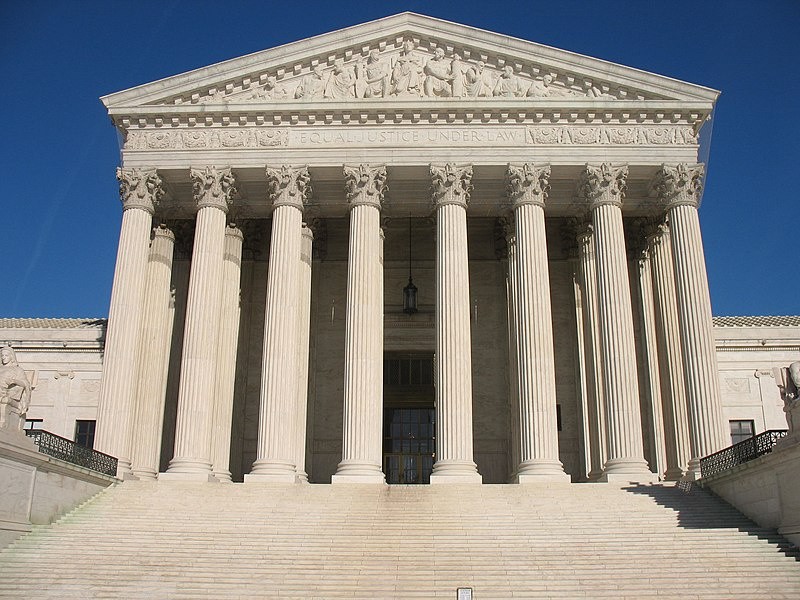The US Supreme Court rules against the EPA and limits the government's ability to restrict dangerous pollutants. The Supreme Court rules in favor of Republican states, marking a watershed event in the rightwing's campaign to destroy the "regulatory state."

Supreme Court Decision
The United States Supreme Court has sided with Republican-led states, thereby crippling the federal government's capacity to address the climate problem in a decision that will have far-reaching ramifications for the government's total regulatory power.
The Supreme Court, which has become dominated by rightwing justices under the Trump administration, has opted to support a case brought by West Virginia that demands the US Environmental Protection Agency (EPA) be limited in how it regulates planet-heating gases from the energy sector in a 6-3 decision that will seriously impede America's ability to stave off disastrous global warming.
The lawsuit, supported by several other Republican-led states like Texas and Kentucky, was unique 'because it was based on the Clean Power Plan, an Obama-era scheme to reduce emissions from coal-fired power plants that never materialized. The Biden administration attempted to dismiss the complaint as frivolous since the scheme had been abandoned and had not been reintroduced.
A Major Decision

This was not merely a case involving a rule that did not exist, never went into force, and would have imposed responsibilities on the energy industry that it would have satisfied anyway. It also concerns two legal theories not addressed in the constitution and, according to most experts, are not supported by any federal legislation.
However, the Supreme Court sided with West Virginia, a major coal mining state, which argued that the EPA's "unelected bureaucrats" should not be allowed to reshape its economy by limiting pollution - although coal emissions are contributing to worsening flooding, heatwaves, and droughts around the world, as well as killing millions of people through toxic air.
"Capping carbon dioxide emissions at a level that will force a countrywide shift away from the use of coal to produce energy may be a sensible solution to the day,'" said Chief Justice John Roberts in the decision. "However, it seems unlikely that Congress provided the EPA the authority to implement such a regulatory structure on its own in Section 111." (d). A decision of this scale and significance must be made by Congress or an agency functioning under a clear delegation from that legislative body."
Conservative judges Samuel Alito, Neil Gorsuch, Brett Kavanaugh, and Amy Coney Barrett joined Roberts. Sonia Sotomayor, Elena Kagan, and Stephen Breyer, three liberal justices, dissent. It is the most significant climate change case heard by the Supreme Court in over a decade.
However, the verdict may have far-reaching implications for the federal government's power to establish rules and regulate in other areas, including clean air and water, consumer rights, banking, workplace safety, and public health. It might be a watershed moment in conservative efforts to demolish the "regulatory state," removing safeguards from Americans in various areas.
It can radically alter what the federal government is and what it does. Furthermore, as Justice Elena Kagan pointed out in her dissent, it may delegate technical choices to a political authority that is unfamiliar with them.
"First, members of Congress frequently don't know enough - and are aware that they don't know enough - to properly regulate a problem. Members, of course, may and do give general direction. But, like we all do in our daily lives, they rely on those with more skill and experience. "Those individuals can be found in agencies," she added.
Several conservatives on the court have questioned what they consider unrestrained government agencies' power, as seen by decisions overturning two Biden measures designed to curb Covid-19 distribution.
Overturning the Memorandum
Last July, the conservative majority overturned a pandemic-related moratorium on evictions for unpaid rent. The same six judges rejected a mandate that workers at major firms be vaccinated or tested for the coronavirus regularly and wear a mask on the job in January.
In the EPA court lawsuit, the Biden administration was supported by New York, more than a dozen Democratic-led states, and significant firms such as Apple, Amazon, and Google that have urged a rapid shift to renewable energy.
The administration has pledged to cut US emissions by the end of this decade. Still, its legislative efforts have failed, with a major climate package killed by Republican senators and Joe Manchin, the moderate Democratic senator from West Virginia.
The federal government could also impose emissions reductions through administrative rules, but the Supreme Court verdict has jeopardized that ability.
Related Article : Experts are Saying that Renewable Sources are Not Enough to Solve Europe's Energy Crisis
For more environmental news, don't forget to follow Nature World News!
© 2026 NatureWorldNews.com All rights reserved. Do not reproduce without permission.





